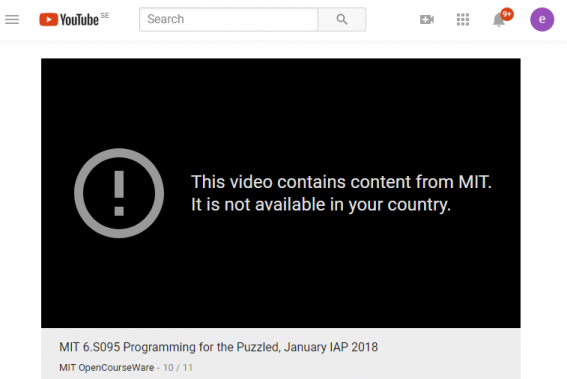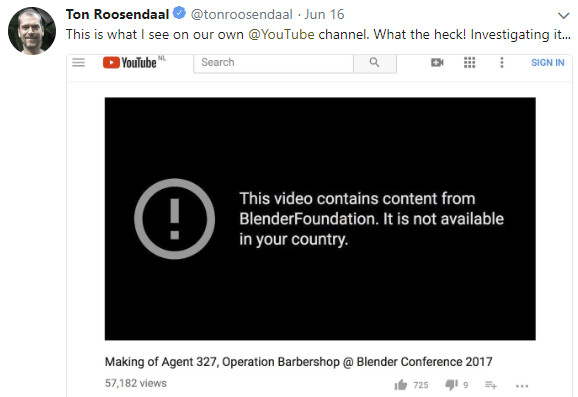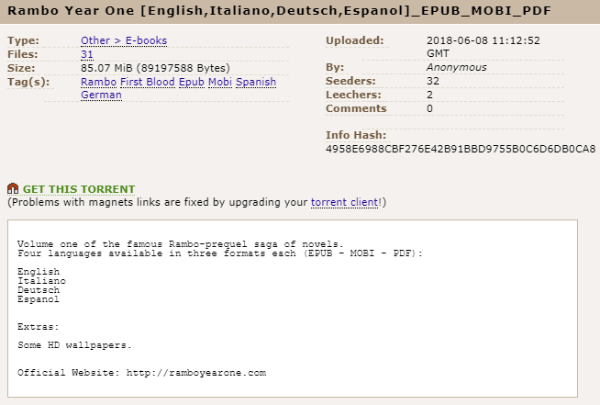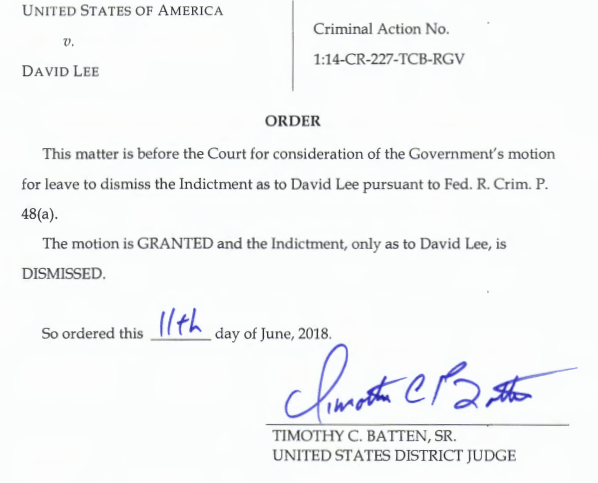
As previously documented, Adam Lackman is being sued by an army of Canadian telecoms giants including Bell Canada, Bell ExpressVu, Bell Media, Videotron, Groupe TVA, Rogers Communications and Rogers Media.
With mixed results in court thus far, last week saw bailiffs for the plaintiffs revisit Lackman’s home, hoping to secure property to pay off CAD$50,000 in costs run up by the telco’s attorneys.
In the end, however, the bailiffs only earmarked a laptop and two “near worthless” prints. The goods will be sold at auction come July 31 unless Lackman can come up with the cash amount, which has now swelled to CAD$57,500.
With this latest aggressive act ringing in his ears, it appears that TVAddons have been considering what can be done to safeguard the future of the site. Lackman, perhaps understandably, is now seen as a potential Achilles’ Heel, something which has prompted a fresh announcement about his future.
“Under immense pressure, our team and I have decided that it would be best if I resigned from an administrative role in order to protect the longevity of our platform,” he informs TF.
“I will continue to remain onboard in a marketing position, also doing general community outreach like I always have.”
More information is available in a TVAddons post on the topic, which also details the rather unusual method used to select his successor.
“In selecting the individual to replace Adam in his former role as administrator, an automated script was used to randomly select his replacement from amongst our most trusted senior staff,” the report reads.
“At the time of selection, the automated script also delivered relevant passwords which the new administrator then changed so that only he would know them. Only the staff member selected knows that he is our new platform administrator.”
While unusual in its reported execution, it doesn’t take a genius to work out that given the ongoing assault on TVAddons, this latest move is designed to take the pressure off Lackman. We asked him if not being the operator of the site would be helpful moving forward.
“When we relaunched last August, it was decided amongst our team members that I would not be the owner of the new domain. The new owner was selected in a similar fashion to how the new admin was selected. I can’t say who the owner is, and actually I don’t know his identity anyway,” Lackman explained.
“I have therefore not been the owner of the new site since it was launched. And since we launched it without any of the assets of the previous website, we see it as an entirely new entity.”
Given the circumstances surrounding the resignation and the subsequent and unusual appointment of a successor, TF further asked whether the move would be viewed as credible by the telcos and their operatives. Lackman said he didn’t know but pointed out that since he’d been honest over ownership details in the past, that could stand him in good stead for the future.
“Considering I gave them the domains last year pursuant to their court order, even though they were owned overseas by a corporation in the first place, it should show them that I respect the law and the courts and would not take action to circumvent their authority,” he said.
“However, I am also not sure it matters whether the plaintiffs believe it or not, as they have demonstrated a willingness to create their own narrative in order to suit their own agenda anyway.”
In a final note, the TVAddons team says that their new administrator is likely to “surface publicly” in a few weeks’ time, something which could be followed shortly after by some upgrades to the site.
Update: Lackman informs TF that after speaking with his lawyers, they will be blocking the seizure of his laptop which falls under the seizure exemption of “work instruments needed for the exercise of your profession.”
“The bailiff would have known that the laptop was exempt, but put it down for seizure for the purpose of causing me additional grief in having to take legal measures to ensure that it is not seized,” he says.
Source: TF, for the latest info on copyright, file-sharing, torrent sites and more. We also have VPN reviews, discounts, offers and coupons.

 For as long as games consoles have existed, security to prevent people from playing pirated games has been under attack.
For as long as games consoles have existed, security to prevent people from playing pirated games has been under attack. Back in April, the Alliance for Creativity and Entertainment (ACE), an anti-piracy partnership forged between Hollywood studios, Netflix, Amazon, and more than two dozen other companies, sued Florida-based Set Broadcast, LLC.
Back in April, the Alliance for Creativity and Entertainment (ACE), an anti-piracy partnership forged between Hollywood studios, Netflix, Amazon, and more than two dozen other companies, sued Florida-based Set Broadcast, LLC. Through a series of new proposals, the European Commission is working hard to modernize EU copyright law.
Through a series of new proposals, the European Commission is working hard to modernize EU copyright law. 

 To protect copyright holders, YouTube uses an advanced piracy recognition system that flags and disables videos which are used without permission.
To protect copyright holders, YouTube uses an advanced piracy recognition system that flags and disables videos which are used without permission. 

 In this day and age, aspiring artists have access to a wide variety of tools they can use to create a decent product.
In this day and age, aspiring artists have access to a wide variety of tools they can use to create a decent product.

 Assisted by police in France and the Netherlands, the
Assisted by police in France and the Netherlands, the 
